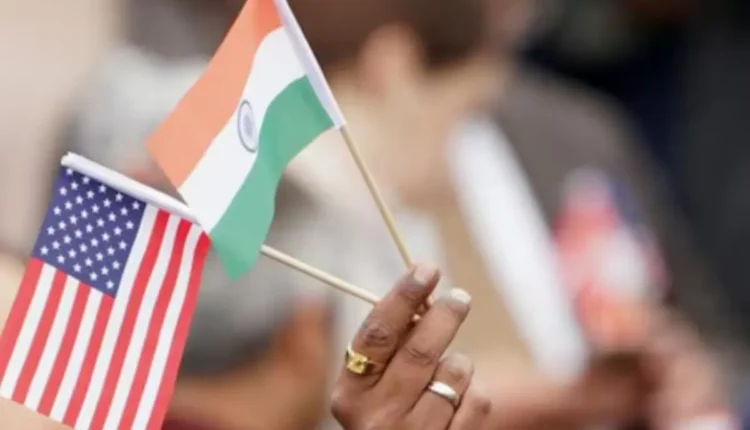H-1B visa reforms from Jan 17: Faster processing, simpler F-1 transitions
The H-1B Visa Programme Overhaul: Key Updates and Impact on Global Talent
The US government is set to implement a significant H-1B visa programme overhaul starting January 17, 2025. This landmark reform, announced by the Department of Homeland Security (DHS), promises to modernize the visa system, addressing long-standing issues while fostering innovation and economic competitiveness.
“These improvements to the programme provide employers with greater flexibility to hire global talent, boost our economic competitiveness, and allow highly skilled workers to continue advancing American innovation,” said Alejandro N Mayorkas, Secretary of Homeland Security.
This comprehensive reform is expected to benefit thousands of Indian professionals, who make up the majority of H-1B visa holders. In 2023, Indian nationals accounted for an impressive 72.3% of the 386,000 H-1B visas issued.
Key Highlights of the H-1B Visa Programme Overhaul
The revamped H-1B visa programme is designed to address the concerns of employers, employees, and advocacy groups alike. Here are the major updates:
- Revised Criteria for Cap-Exempt Organizations:
Nonprofit and governmental research organizations now qualify as cap-exempt if their “fundamental activity” is research. This replaces the ambiguous earlier criterion of being “primarily engaged” in research, offering clarity to applicants and employers. - Simplified Transition for F-1 Visa Holders:
International students on F-1 visas will experience fewer disruptions when transitioning to H-1B status, ensuring smoother employment and legal continuity. - Faster Visa Processing:
The USCIS is committed to expediting the processing of H-1B extension applications, reducing delays for both employers and employees. - Flexibility for Employers:
Businesses can now document specific workforce needs to hire H-1B workers, enabling more strategic and dynamic talent planning. - Eligibility for Entrepreneurs:
Individuals with a controlling interest in their sponsoring organization can qualify for H-1B visas under stricter yet clearly defined conditions, supporting entrepreneurial growth. - Stronger Safeguards Against Misuse:
Enhanced inspections, penalties for non-compliance, and stricter eligibility checks aim to prevent misuse and protect genuine applicants. - Updated Petition Form:
A revised Form I-129 will align with the updated regulations, becoming mandatory from January 17, 2025. - Year-Round Cap Exemptions:
Cap-exempt organizations, such as universities, teaching hospitals, and nonprofit research institutions, can now submit petitions year-round without numerical limitations. - Measures Against Lottery Abuse:
Stricter controls will prevent organizations from submitting bulk applications to flood the H-1B lottery, ensuring fairness for genuine applicants.
The Impact on Indian Professionals
The reforms are particularly significant for Indian professionals, who dominate the H-1B visa landscape. With a streamlined process and expanded opportunities for cap-exempt categories, Indian nationals are likely to benefit immensely. These changes come as major US employers, including Amazon, Infosys, and Tata Consultancy Services (TCS), have faced declining approval rates.
“Many firms are hesitant to engage with the unpredictable lottery process,” noted Piyush Gupta, Vice President for India and the Middle East at CanAm Enterprises. Families are increasingly exploring alternative pathways, such as the EB-5 programme, but the updated H-1B rules could restore confidence in the visa system.
Economic and Technological Contributions of H-1B Visa Holders
H-1B visa holders play a pivotal role in the US economy, particularly in technology and healthcare. Between 2010 and 2019, over 3,300 H-1B scientists contributed to the development of Covid-19 vaccines at companies like Moderna and Johnson & Johnson.
A report by the American Immigration Council highlights that H-1B workers complement the domestic workforce, drive innovation, and create new job opportunities. The reforms aim to continue this legacy by modernizing a programme initially established in 1990.
Challenges and Opportunities for IT Firms
The changes also present challenges for major employers. Amazon, the largest sponsor of H-1B visas, saw approvals drop from over 11,000 in 2023 to just over 7,000 in 2024. Indian IT giants like Infosys and TCS faced similar declines.
Conversely, companies like Meta, focusing on emerging technologies like augmented and virtual reality, reported increased approvals, reflecting the evolving demand for specialized skills.
Also Read:Rubini Sambanthan: Championing Beauty, Advocacy, and Mental Health Awareness

